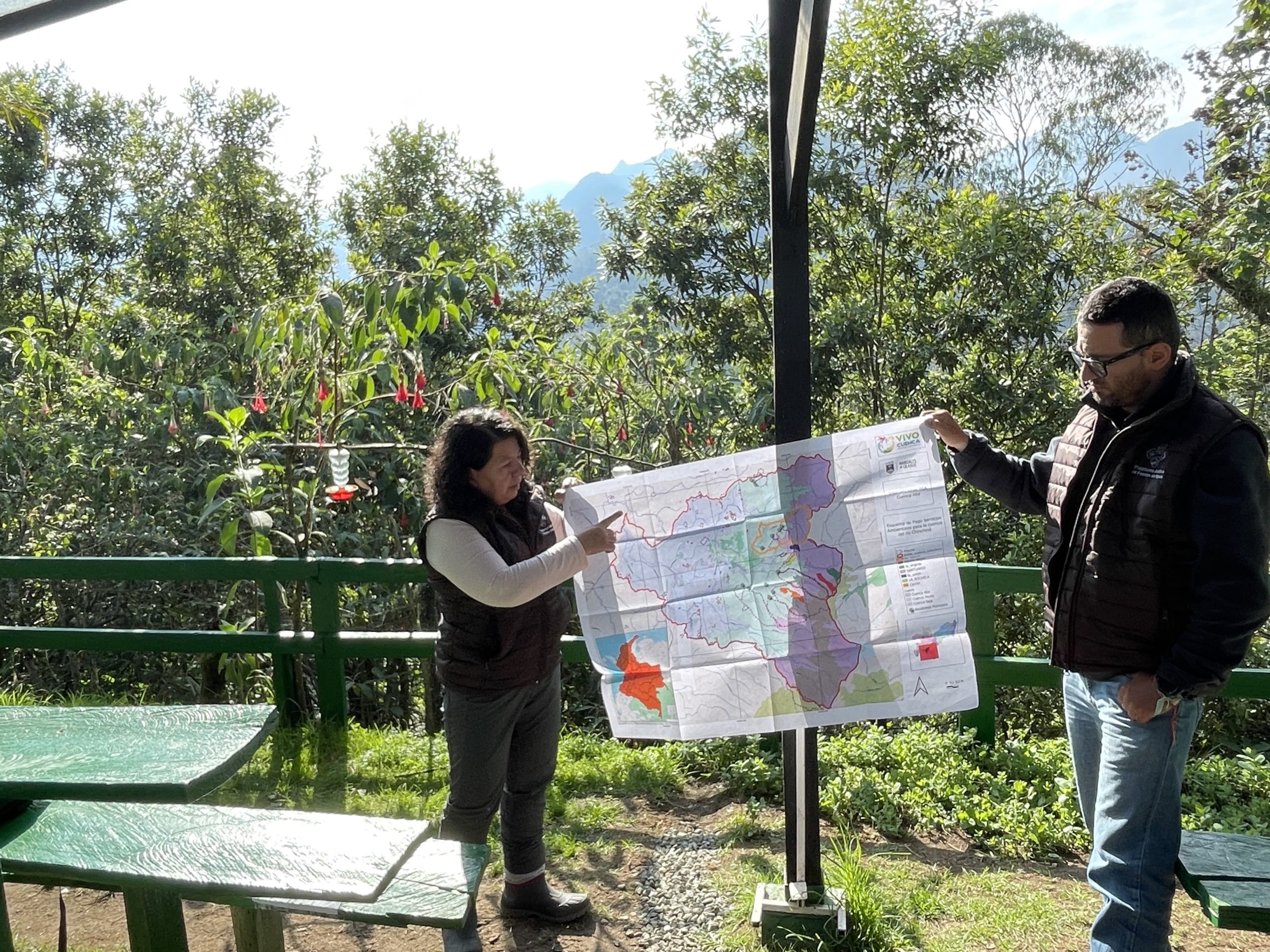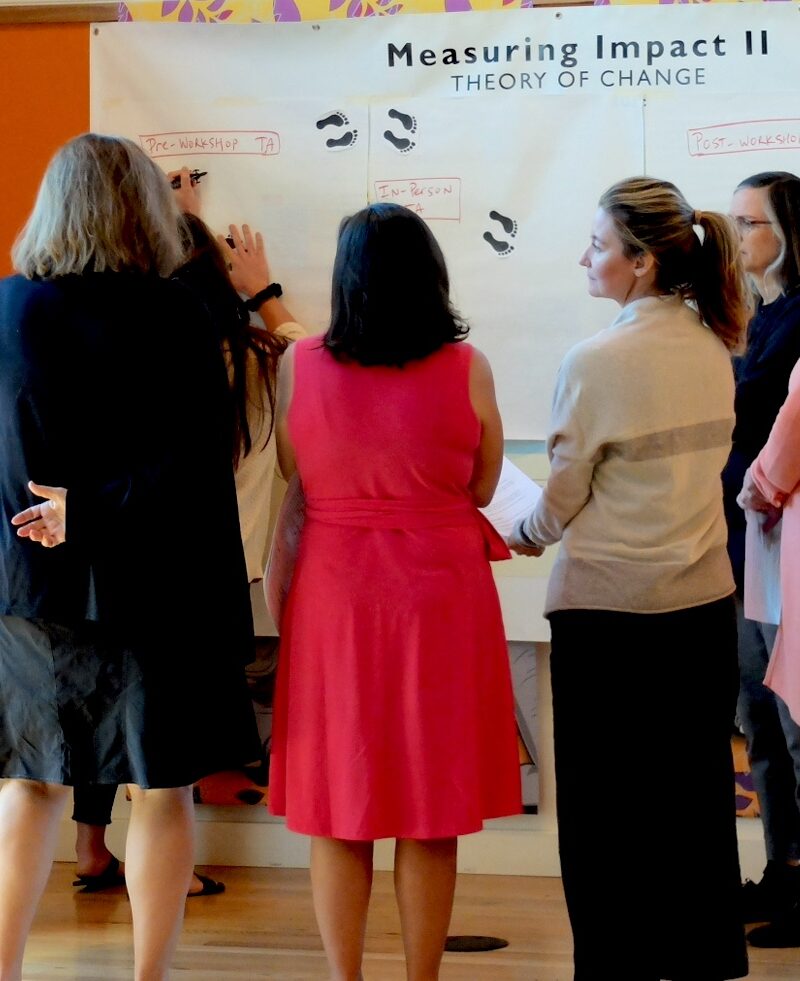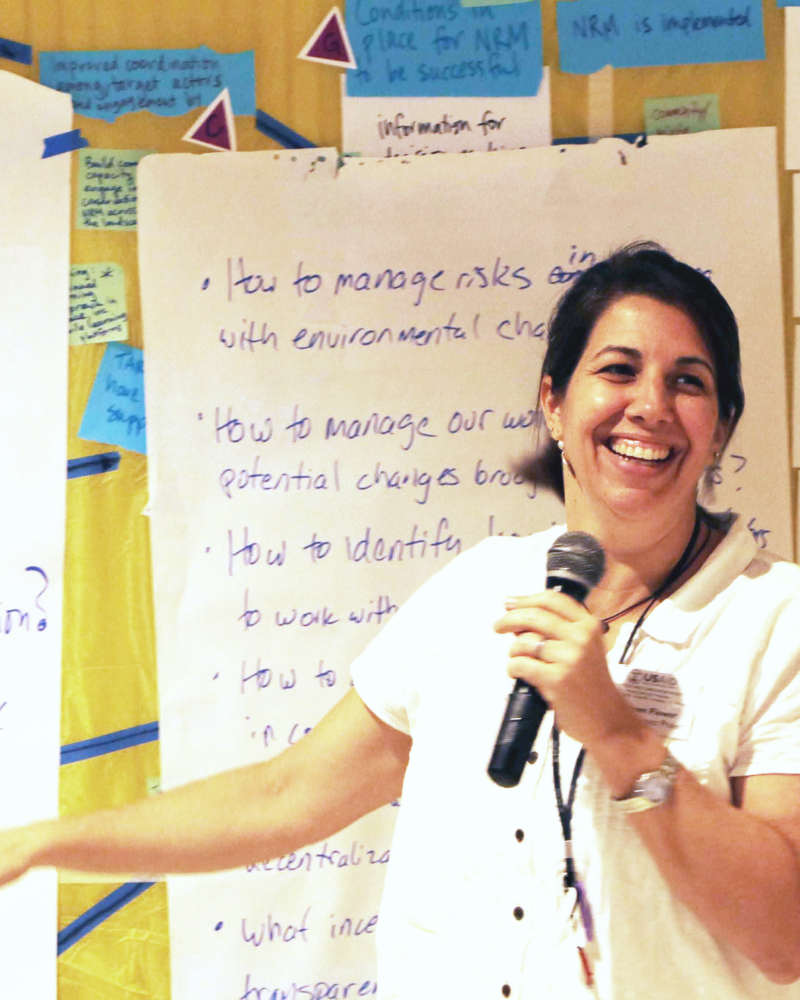At Environmental Incentives, our organizational purpose is to create the conditions for human and natural communities to thrive. We see these human and natural communities facing new and highly complex challenges as the effects of climate change accelerate and disrupt communities’ ability to meet many basic needs. As a result, we have sharpened our organizational focus on meeting the climate imperative and on increasing the empowered engagement of local actors in these efforts.
EI is proud to join a community of 70+ organizations that have endorsed the Principles for Locally Led Adaptation. The eight principles are designed to guide development activities away from top-down approaches to a model in which adaptation programs, investments, and practices are shaped and sustained by local actors.
How are we practicing these principles now?
Each of the eight principles is essential to how we achieve our organizational purpose. We focus on using systems-strengthening, evidence-based approaches to help our clients and partners make decisions that will create impact while engaging local actors more effectively, respectfully, and sustainably.
In the Andean Amazon, EI has partnered with Fundación Futuro Latinoamericano (FFLA), a regional nonprofit organization committed to facilitating locally led sustainable development, and nine Water Funds to design and launch the Andean Water Funds Platform community of practice. The first Water Fund was established 23 years ago, bringing together public and private actors to make strategic decisions to manage and protect the water supply in Quito, Ecuador. Two decades later, more than 25 Water Funds in Latin America have demonstrated their effectiveness as locally led, nature-based solutions that contribute to community adaptation to climate change. The Quito Water Fund (FONAG), for instance, was started by community leaders in 2000 with seed funding of $21,000. Today, FONAG manages an endowment of $28 million, with an annual budget of over $3 million to invest in natural climate actions. The Fund works in key biodiverse areas – water sources – indirectly benefiting over three million people, and is wholly owned and operated by local actors.
As the ecosystem of Water Funds has grown, there is an increasing focus on long-term sustainability. EI, in partnership with FFLA, is facilitating a systematic learning approach to support the funds in sharing knowledge about engaging key actors, and telling the story of how Water Funds can be adapted to contexts around the world. The resulting Andean Water Fund Platform is dedicated to promoting best practices and scaling the water fund model. This innovative model demonstrates the power of Locally Led Adaptation Principles around devolving decision-making (Principle 1), providing patient and predictable funding that can be accessed more easily (3), investing in local capabilities to leave an institutional legacy (4), flexible programming and learning (6), ensuring transparency and accountability (7), and collaborative action and investment (8).
In East Africa, EI partnered with the East African Community (EAC), a regional intergovernmental organization, to develop and apply evidence to regional policies that explicitly consider the natural value of transboundary landscapes – including the value of stored carbon – in decision-making. This nature-based solution was designed by and for local actors as part of a regional initiative of USAID Kenya/East Africa. EI consulted with more than 415 stakeholders (of which nearly 40 percent were women) across Burundi, Kenya, Rwanda, South Sudan, Tanzania, and Uganda to shape a landmark study to identify community priorities related to natural capital and integrate them into regional policy decisions. The EAC contributed to the design, validated the study, moved to adopt the resulting Synthesis Report and Action Plan, and consequently allocated resources to improve collaboration for conservation programs. This work, conducted under the Economics of Natural Capital in East Africa program, gives life to Locally Led Adaptation Principles around devolving decision-making (1), building evidence around climate risk (5), transparency and accountability (7), and collaborative action across development challenges and actors (8).
In California, EI led the design of a locally led solution for the County of San Diego, to motivate private property owners to implement changes to their landscapes that measurably improve water quality and supply. Under a resulting partnership between the County of San Diego and the San Diego County Water Authority, and with EI’s shovel-in-the-ground technical support, nearly 100 property owners have converted almost 100,000 square feet of thirsty grass to more climate-adapted, low-water-use landscaping, and treated nearly 175,000 square feet of hardscaping to keep water on-site through cisterns, rain gardens, and permeable surfaces. By designing the program to meet the needs of property owners and pooling resources to create “stacked” incentives, this initiative demonstrates the power of Locally Led Adaptation Principles around providing patient and predictable funding that can be accessed more easily (3), and collaborative action across development challenges and actors (8).
Where do we go from here?
Advancing climate adaptation and locally led development is increasingly at the center of our work and we are proud to join the community of organizations and practitioners championing this approach. Now that we have confirmed our commitment to the principles, we will continue the necessary and challenging work to advance locally led adaptation in our internal processes and in our support to clients in conservation and development. In addition to tracking our progress towards these principles, we look forward to continuing to learn in this community of practice and at the upcoming 27th United Nations Framework Convention on Climate Change Conference of the Parties (COP) on Climate Change in Sharm el Sheik, in November 2022.



